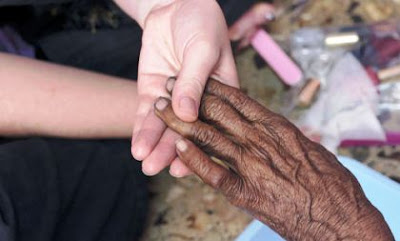 For many elderly Americans, retirement time is fast approaching. If they try to live off their pension alone, many would sooner extend working hours than apply for an early retirement. Spending and budgetting the meager pension they receive from the government is a daunting prospect for many Americans. Instead, they consider relocating somewhere where their dollars are valued more and can give them a much decent living environment than in their home countries. For some, moving to retire in another country such as Mexico (for North Americans), or Portugal and Spain (for Northern Europeans) is an option which has been successful. But many are now considering Philippines as their primary destination.
For many elderly Americans, retirement time is fast approaching. If they try to live off their pension alone, many would sooner extend working hours than apply for an early retirement. Spending and budgetting the meager pension they receive from the government is a daunting prospect for many Americans. Instead, they consider relocating somewhere where their dollars are valued more and can give them a much decent living environment than in their home countries. For some, moving to retire in another country such as Mexico (for North Americans), or Portugal and Spain (for Northern Europeans) is an option which has been successful. But many are now considering Philippines as their primary destination.Over the last decade, the Philippines has become a retirement haven for thousands of foreigners, particularly the Japanese, Korean, and Northern Europeans. Along with Thailand and Malaysia, the Philippines developed communications, infrastructure, and service delivery systems specifically geared to meet the needs of foreign retirees.
The principal appeal for retirement in the Philippines is the lower cost of living. At present, the Philippine Peso (PhP) exchange rate is approximately PhP43.00 to US$1.00.
For a foreign retiree, a two bedroom condominium in one of the posh " villages" in Makati City costs about US$400.00 a month, while eating in some fancy restaurant can just cost about US$20.00 per person and this includes already the tax and a decent tip. Using this scenario, an owner of a retirement village is already assured of at least US$400 per month from one retiree and this could go up to US1,600 per month each if the retiree also require food be served to them.
If the foreign retiree wants to employ several house help, labor would be easy to find since the retirement village owner can charge a reasonable, but competitive price. For instance, a private driver's salary is approximately US$200.00 per month, while a trained housekeeper will earn about US$100.00 per month. These rates could further decrease if the location is somewhere in the provinces and not in metropolitan areas like Manila and Cebu. The retirment village owner can charge an additional fee to the retiree for facilitating the application and possible hiring of these employees.
In a country where a provincial Governor's salary is PhP 28,000 per month, and a Presidential Cabinet Under-Secretary earns PhP 35,000, a retirement home owner earning at least US$1,600 per retiree is quite better off. No additional cost is expected aside from the initial investment cost and maintenance cost, since marketing wise, the country is already an attractive destination.
Part of the feature of the retirement home industry is that most U.S. Health Management Organizations actually pay for medical expenses incurred in here. The Philippine Department of Foreign Affairs (DFA) even has a task force that is working to have the U.S. government accredit a number of first class Philippine hospitals for Medicare reimbursement. The Makati Medical Center, one of the nation's best already has such accreditation. The quality of medical care of the other hospitals such as St. Luke's, Medical city, Cardinal Santos, Philippine Heart Center for Asia and National Kidney Institute also meets international standards.
Just to highlight the potential of retirement home business in the country, consider this: a Japanese company will be building a medical facility in Tagaytay city to cater to the needs of about 10,000 Japanese retirees in the country, and the number is growing annually. A retirement village exclusively for Japanese nationals already exists in Tagaytay, and more are being planned to be built in the next five years. The British government likewise acquired a large tract of land in Fort Bonifacio to build a large Embassy to help serve the growing number of British nationals retiring in the country. There are also several Korean investment groups buying homes and condominiums in Manila, and tracts of provincial land for retirees.
| Retirees Visa A privilege granted to foreigners who would like to have a permanent resident status in the Philippines. For investing in the Philippines, foreigners can enter and leave the country as many times and as long as one wishes, including family members. With a Special Resident Visa, a holder can live, do business, study in the Philippines indefinitely. Requirements for Special Resident Retirement Visa A. Principal Applicant
Family Register (for Koreans) Household Register (for Taiwanese) Certificate of Relationship (for P.R.O.C.) Fees
Reference: Why Retire in the Philippines? |
















0 comments
Post a Comment